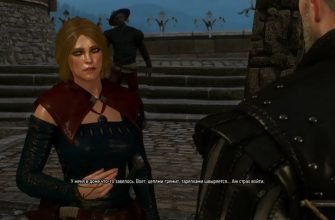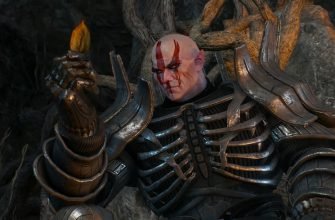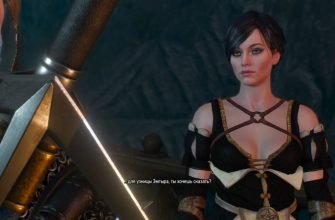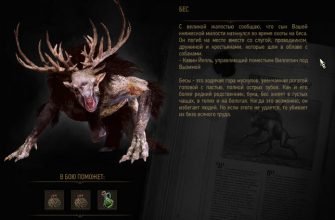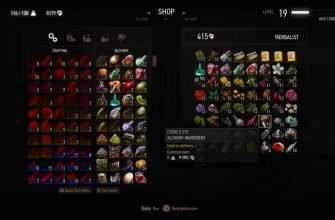In The Witcher 3: Wild Hunt, players immerse themselves in a rich world of quests and adventures, with one such intriguing side quest titled “An Unpaid Debt.” It unfolds on the mysterious Skellige Isles, presenting players with complex moral choices that impact Geralt’s journey as a monster hunter. This secondary quest, activated through prior choices in the related quests “Stranger in a Strange Land” and “The Cave of Dreams,” offers a challenging moral quandary that pits loyalty and honor against ethical integrity.
Understanding the Setup
“An Unpaid Debt” becomes available under specific conditions, highlighting the interconnected nature of the quests in The Witcher 3. To trigger this quest, Geralt must have previously sought assistance from a character named Simun Brambling during the “Stranger in a Strange Land” quest. Additionally, completing the “Cave of Dreams” quest is necessary before this storyline unfolds.
The quest takes place in the rugged and mystical Skellige region, particularly concentrated around Kaer Trolde and Blandare. It introduces a narrative where Geralt’s actions—or inaction—while imprisoned by Madman Lugos lead to a future debt that Simun Brambling insists Geralt must repay. This request from Simun is the catalyst of the quest, forcing players to engage with ethical and personal considerations.
Quest Activation and Choices
Upon fulfilling the prerequisites, players encounter Simun Brambling outside New Port Inn in Kaer Trolde several days after completing “The Cave of Dreams.” Simun reminds Geralt of the past favor and demands its repayment by tasking Geralt with killing a man named Volund. Volund harbors a personal vendetta against Simun, accusing him of fratricide through betrayal.
This interaction presents players with a dilemma. The decision boils down to the following potential actions:
- Agree to kill Volund: By choosing this path, Geralt agrees to fulfill Simun’s violent request, pitting him against Volund and one or more warriors. This choice aligns with the tradition-bound honor prevalent in Skellige, where keeping one’s word, even if it means committing dishonorable acts, might be considered an honorable course.
- Refuse to kill Volund: Should players decide that they cannot reconcile with spilling innocent blood, Geralt will instead face Simun and Volund, fostering an alliance with Volund against a common adversary. Here, Geralt’s choice demonstrates a prioritization of personal morality over the skelligeans’ sense of obligatory honor.
Consequences of the Decision
Each decision path leads to distinct combat scenarios and outcomes:
- Supporting Simun: A battle ensues against Volund and accompanying warriors. Emerging victorious grants players 50 experience points, concluding the quest with Geralt maintaining his commitment to honor a past favor, irrespective of moral questions.
- Opposing Simun: Combat unfolds with Geralt siding with Volund against Simun and his followers. After overcoming this challenge, Geralt’s choice reflects a deviation from societal expectations but aligns with a personal moral compass, once again ending with a 50 experience point reward.
Regardless of choice, the quest lacks significant material rewards or substantial character development, instead offering players a reflective exploration of Geralt’s values.
Detailed Walkthrough
| Objective | Description |
|---|---|
| Meet Simun at the hut by the lake near Blandare | Geralt travels to the specified location to engage in dialogue with Simun and confront the moral decisions presented. |
| Decide on Volund’s fate | Faced with a timed choice, Geralt either agrees to assassinate Volund or declines, resulting in a shift in alliances and battle conditions. |
| Battle Outcome | Engage in combat based on the decision. The battle can lead to defeating Volund and his warriors or siding with Volund against Simun. |
Analysis and Implications
“An Unpaid Debt” serves as a fascinating case study within The Witcher 3: Wild Hunt, wherein the game’s design expertly intertwines Geralt’s character with the broader narrative themes of choice and consequence. The quest embodies a quintessential moral puzzle—a hallmark of The Witcher series—encouraging players to consider the broader ramifications of their decisions.
The central dilemma addresses themes of loyalty, tradition, and personal ethics. Skellige’s culture and values shine through, presenting an environment where Geralt’s choices are as vital as his physical prowess. This depth instills a sense of realism and authenticity, creating a richly layered narrative experience.
Strategizing the Approach
While the quest itself does not yield material wealth or significant boosts to Geralt’s capabilities, its importance lies in player engagement and narrative resolution. Players often pursue this quest for completionist purposes or to fully appreciate the game’s narrative depth. A thoughtful approach might involve considering the following points:
- The context of Skelligean honor and personal philosophy: How does Geralt perceive his own moral code in comparison to the regional customs?
- Potential future interactions that might be influenced by maintaining or breaking bonds.
- The player’s personal playstyle and narrative investment: Is moral consistency or immersive storytelling more appealing?
In conclusion, “An Unpaid Debt” exemplifies The Witcher 3’s masterful narrative design, offering players an insightful glimpse into the complexities of human relationships and ethical decision-making within a fantasy setting. The quest challenges players to reflect on the intersections of duty, personal choice, and the ever-present weight of past actions.


